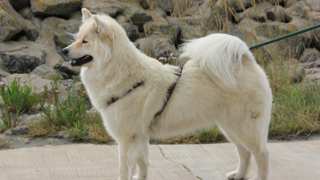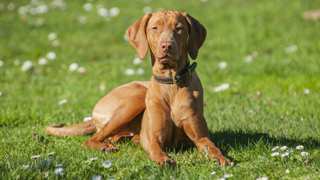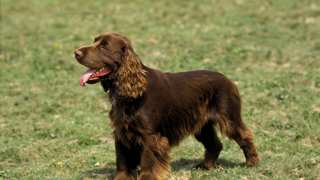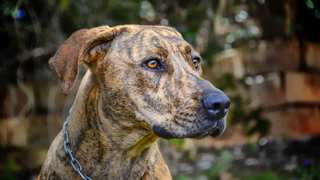The Kai Ken diet should include animal proteins and carbohydrates for energy, vitamins and minerals for digestive and immune health, and omega fatty acids for coat and skin wellness. This means the best Tiger Dog food is premium dry kibble, as it has balanced portions of the above-listed nutrients.
Three recommended brands are Royal Canin, Blue Buffalo, and Taste of the Wild, all of which carry excellent lines of premium dry food.
The typical adult Kai will need about two cups of premium food per day, divided into two meals. Kai puppies will need a bit less: about 1½ cups per day, divided into three meals until six months old.
For further info on feeding a Kai Ken, see this feeding chart:
Dog AgeDog WeightFood TypeAmountFrequency2 Months5 lbsDry (Puppy formula)0.25 cups3x/day3 Months10 lbsDry0.33 cups3x/day6 Months20 lbsDry0.5 cups3x/day9 Months30 lbsDry* (Puppy/Adult)0.8 cups2x/day12 Months+35 lbsDry (Adult formula)1 cup2x/day*--Around this time, transition to adult food by first mixing in a bit of adult formula with the puppy formula. Over the course of a week, with each meal add a little more adult formula to the mixture, until the dog is eating it entirely.
Try to stick to the above-listed portions. These dogs can become overweight if constantly overfed--and a fat Kai Ken will have numerous health problems and a shortened lifespan. You can help control your Kai's weight by having consistent feeding and exercise schedules, by not feeding the dog table scraps, and by not leaving food in the dog's bowl all the time.
If you're worried your Kai Ken is overweight, give the dog this simple test: run a hand along its side, and if you can't feel any ribs, it's diet time--which means more exercise and less food.



